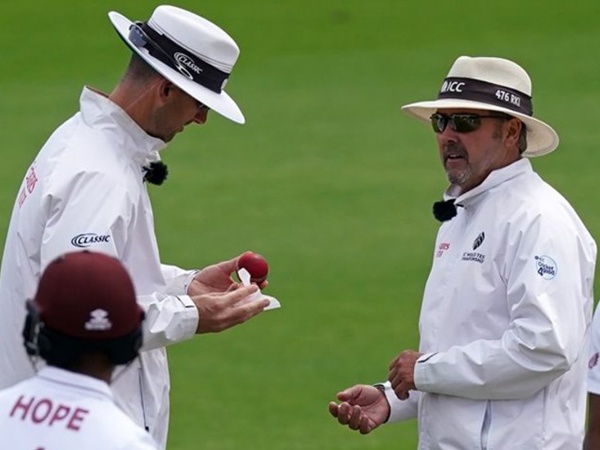ICC introduces new cricket rules for international setup
The International Cricket Council (ICC) has introduced a series of regulatory changes aimed at improving the flow and fairness of Test cricket, beginning with the 2025–2027 World Test Championship (WTC) cycle. These new rules came into effect with the opening Test between Sri Lanka and Bangladesh in Galle. Among the most significant introductions is the implementation of a 'stop clock' to address the ongoing issue of slow over rates. This measure is designed to ensure that fielding teams stick to the required pace of play, ultimately promoting a more engaging experience for players and spectators alike.
New cricket rules introduced by ICC
In addition to the stop clock, the ICC has also revised the rule regarding short runs. Under the updated guidelines, if a batter is found to have deliberately run short, the fielding side now has the authority to choose which batter will face the next delivery. This change is aimed at discouraging unsportsmanlike conduct and adds a tactical element for the fielding team. These fresh rules reflect the ICC’s broader effort to modernize Test cricket while preserving its traditional appeal. By introducing stricter time management and reworking contentious scenarios like deliberate short runs, the ICC hopes to bring more clarity, excitement, and competitiveness to the longest format of the game.
To address the long-standing concern of slow over-rates in Test cricket, the ICC has officially implemented the 'stop clock' rule as part of the updated Test Match Playing Conditions. According to the details published on the ICC’s official website, the fielding team must be ready to begin a new over within 60 seconds of the previous one ending. To enforce this regulation, an electronic clock will be displayed at the ground, counting up from zero to 60 seconds after each over, making it clear when the next over should commence.
The rule aims to ensure that the game maintains a steady tempo, enhancing both the viewer experience and match fairness. The ICC has introduced a structured penalty system to enforce the rule. Initially, the fielding side will receive two warnings if they exceed the 60-second limit. If the offense is repeated a third time, the batting side will automatically be awarded five penalty runs. These infractions are not carried forward indefinitely — the warning count will reset once 80 overs have been bowled in the innings.
According to recent developments, the ban on the use of saliva to shine the ball in international cricket continues to remain in effect. However, there has been a change in how the rule is enforced during matches. Earlier, if saliva was accidentally applied to the ball, umpires were required to change it immediately to ensure compliance with health and safety protocols introduced during the pandemic. Now, while the use of saliva is still prohibited, the International Cricket Council has relaxed this particular enforcement. Umpires are no longer obliged to replace the ball if it has come into contact with saliva. This adjustment reflects the evolving understanding of health risks while maintaining the ban to discourage old habits. The focus continues to be on encouraging players to use sweat instead of saliva for shining the ball, a practice that has become standard across formats in the post-COVID era.
The ICC has clarified and tightened its stance on what constitutes a "deliberate short run" in international cricket. According to the updated rulebook, a deliberate short run is defined as an attempt by the batters to give the impression of completing multiple runs, while at least one of them intentionally does not make good their ground at one end. The intent behind this action is often to deceive the umpire or manipulate the strike.
However, the ICC notes that if the batters clearly abort a run without any intention to deceive or gain an unfair advantage, it won’t be treated as a deliberate short run. In instances where a deliberate short run is identified, the umpire at the bowler’s end is instructed to disallow all runs for that delivery. Additionally, the not out batter will be sent back to their original end. If the delivery was a no-ball or wide, that call will still stand. The umpire will also signal the short run to the scorers, award five penalty runs to the fielding side, and importantly, request the fielding captain to decide which batter should face the next delivery. These changes aim to promote fair play and maintain integrity within the game.
